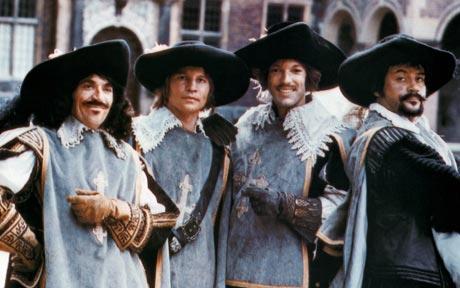Posted on March 30, 2014
NATO
No More
One
for all and all for naught
by
Daniel Clark
Ukraine is not a member of the North Atlantic Treaty Organizaion, but it did have an agreement with us, which has proven to be all but meaningless. That realization, driven home by Russia’s annexation of Crimea, has got to have recently admitted Eastern European NATO members wondering just how worthless, or even counterproductive, their alliance with the U.S. and its Western European partners has been.
The Budapest Memorandum of 1994, signed by President
Clinton, British Prime Minister John Major, and Russian President Boris
Yeltsin, promised on behalf of their three nations to “respect the independence
and sovereignty and the existing borders of Ukraine,” to “refrain from the
threat or use of force against the territorial integrity or political
independence of Ukraine,” and to “refrain from economic coercion designed to
subordinate to their own interest the exercise by Ukraine of the rights
inherent in  its
sovereignty.”
its
sovereignty.”
At first glance, the involvement of the U.S. and Britain in such an agreement makes about as much sense as having Nolan Ryan, Florence Henderson and William Ayers all sign a pledge not to bomb the Pentagon. The only reason for the first two to sign is to obscure the fact that the third signatory is the only one who would contemplate such an evil act.
There was no need for Clinton and Major to promise not to attack or threaten Ukraine. By signing onto a statement that none of the three nations would do so, they were really only vouching for Russia. This was not a treaty, which would have required ratification, but a legally nonbinding pledge signed by three heads of state. Nevertheless, it was presented to Ukraine as a promise from the West that it would not be threatened or violated. In response, the Ukrainians’ part of the bargain was that they dismantle their nuclear program, which they did.
In the absence of that nuclear deterrent, Ukraine has had its sovereignty trampled, had its territorial integrity shattered by the use of force, and been economically coerced in order to subordinate its rights to Russia’s interests. If Ukraine had understood that the West would have done anything to prevent that, it was mistaken, for there’s nothing in the agreement to suggest any consequences for violating it. We simply trusted that Yeltsin’s successors would honor his commitment.
Like Ukraine, the Baltic States – Lithuania, Latvia and Estonia – are former Soviet possessions. Unlike Ukraine, these three nations were admitted into NATO in 2004. Their obvious motivation for joining was to protect themselves from future Russian hostilities. They must now be wondering why they bothered. If they are not going to be protected by their fellow NATO members, there’s not much point in their putting up any resistance. If Russia is bent on subsuming them, they might as well go ahead and get it over with as bloodlessly as possible.
According to Article 5 of the North Atlantic Treaty, “The Parties agree that an armed attack against one or more of them in Europe or North America shall be considered an attack against them all.” If Russia invades Estonia, will we really consider that an attack on ourselves, just as if the Soviet Union had invaded West Germany? Here’s a hint: no. In fact, the treaty does not require a military response to such an attack. It merely stipulates that each member state shall take “such actions as it deems necessary.”
NATO is not, of course, the first organization to employ this “one for all and all for one” credo. The Three Musketeers used this as their motto, and like NATO’s Cold War-era signatories, they meant it. The Musketeers had no problem maintaining this oath of loyalty while extending it to a fourth member, but what if they’d opened their doors and allowed every Tom, Dick and Harry to sign up?
Remember how, in the 1973 film version, Athos, Porthos and Aramis, though all wounded, came running to D’Artagnan’s aid outside the royal palace. Imagine instead that it was the gratuitously added member Harry who was in danger of being turned to Swiss cheese by the Cardinal’s guards. Such an attack on Harry could not realistically be perceived as tantamount to an attack on D’Artagnan.
The Three Musketeers’ most significant display of loyalty would probably be a toast at their local cafe. “Too bad about Harry,” they’d say. “He seemed like kind of a nice fellow.” It is only to be expected that Tom and Dick would have second thoughts about joining such a chicken outfit.
The
Shinbone: The Frontier of the Free Press